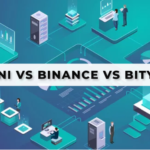Key Takeaways
- FSA urged banks to take action if they notice discrepancies between the sender’s name and the account name.
- Banks are expected to consider FSA’s recommendations and decide on measures depending on their circumstances
Japanese financial regulators have recently issued new guidelines concerning peer-to-peer (P2P) crypto transactions, putting a spotlight on the need for local banks to step up their vigilance.
The Financial Services Agency (FSA) clarified that these guidelines are specifically aimed at transactions involving crypto-asset exchange service providers, rather than those between individuals. Their message, conveyed in a letter to banks dated Feb. 14, stresses the importance of protecting users from potential fraud within the crypto space.
To combat unlawful money transfers to crypto platforms, especially those stemming from identity fraud, the FSA urged banks to take action if they notice discrepancies between the sender’s name and the account name.
This move aims to thwart fraudsters who manipulate individuals into depositing funds into their crypto accounts by persuading them to alter their name to match the fraudster’s identity. By blocking suspicious transactions linked to name changes, banks can play a pivotal role in preventing unwitting involvement in fraudulent activities.
Additionally, earlier this month, the FSA proposed a legislative amendment to foster the growth of decentralized autonomous organizations (DAOs) in Japan. These organizations, operating through smart contracts to replicate the governance structure of traditional companies, are poised to gain legal recognition under the proposed amendment.
The tokens associated with these DAOs would be designated as “Limited Company Type DAO Employee Rights Token,” affording holders similar legal rights to those of regular limited liability company (LLC) members. The regulator is currently seeking public feedback on this proposed amendment until March 4th.
Despite the proactive measures taken by several financial institutions, the FSA has not received any significant reports of concerns regarding crypto asset markets. Notably, adherence to the FSA’s recommendations remains voluntary for financial institutions, allowing them to tailor their response according to their individual circumstances.
Meanwhile, in South Korea, the Financial Intelligence Unit is gearing up to introduce a preemptive trading suspension system for suspicious transactions on local platforms. This preemptive measure aims to halt transactions during the pre-investigation phase, thereby bolstering efforts to combat fraudulent activities in the crypto space.







